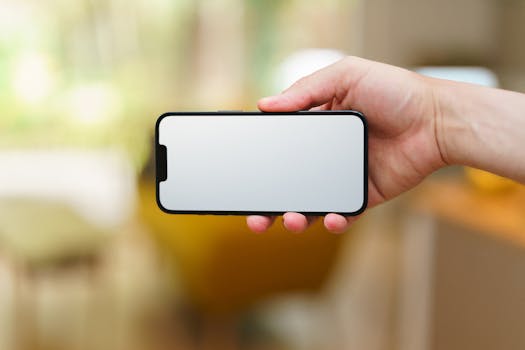
Table of Contents

- Smart Home Devices
- Wearable Technology
- Health Apps and Telemedicine
- Virtual Reality and Augmented Reality
- Artificial Intelligence in Personal Assistance
Smart Home Devices

In recent years, smart home devices have transformed the way we live, bringing convenience and efficiency to our daily routines. From smart thermostats that learn our preferences to voice-activated assistants that control our home environment, these technologies enhance our quality of life.
Smart lighting systems allow users to adjust the ambiance of their homes with ease, while security systems can be monitored remotely, providing peace of mind. With the integration of IoT (Internet of Things), devices can communicate with each other, creating a seamless experience. This connectivity not only saves time but also energy, making homes more sustainable.
As we delve deeper into smart home technologies, we find that they can also cater to specific needs, such as smart appliances designed for the elderly, promoting independence while ensuring safety. The future of smart homes is bright, with advances in AI and machine learning enabling these devices to become even more intuitive and responsive to our lifestyles.
Wearable Technology

Wearable technology has revolutionized personal health monitoring, making it easier than ever to track fitness levels, sleep quality, and overall well-being. Devices such as smartwatches and fitness trackers provide real-time data that empower users to make informed health decisions.
These wearables often come equipped with features like heart rate monitoring, step tracking, and even stress management tools, all of which contribute to a healthier lifestyle. The integration of health apps allows users to set goals, analyze trends, and receive personalized recommendations based on their data.
Additionally, advancements in wearable technology are paving the way for medical-grade devices that can detect health issues before they become serious. This proactive approach to health management is changing the landscape of personal wellness, encouraging individuals to take charge of their health.
Health Apps and Telemedicine

The rise of health apps and telemedicine has made healthcare more accessible than ever. With just a few taps on a smartphone, users can schedule appointments, consult with healthcare professionals, and manage their health records from the comfort of their homes.
These applications often include features for tracking medication, monitoring symptoms, and even virtual therapy sessions, which can be particularly beneficial for those with busy schedules or mobility issues. The convenience of telemedicine is not only saving time but also reducing healthcare costs, making it a valuable resource for many.
Moreover, health apps are becoming increasingly sophisticated, utilizing AI to offer personalized health insights and recommendations. This technology empowers users to take control of their health, encouraging preventive care and lifestyle changes that can lead to better outcomes.
Virtual Reality and Augmented Reality

Virtual reality (VR) and augmented reality (AR) are not just for gaming; these technologies are making strides in lifestyle enhancement as well. VR can transport users to immersive environments, providing experiences that can be both entertaining and therapeutic.
For example, VR is being used in therapy to help individuals manage anxiety and phobias by gradually exposing them to their fears in a controlled environment. Similarly, AR applications are enhancing fitness experiences by providing interactive workouts that make exercising more engaging.
The educational potential of VR and AR is also significant, offering users the chance to explore new skills and hobbies in a virtual setting. By integrating these technologies into our daily lives, we can enrich our experiences and develop new interests.
Artificial Intelligence in Personal Assistance

Artificial intelligence (AI) is transforming personal assistance, making our lives easier and more organized. From smart assistants like Siri and Google Assistant to more advanced AI-powered applications, technology is streamlining tasks and improving productivity.
AI can manage schedules, send reminders, and even help with decision-making processes, allowing individuals to focus on what truly matters. Moreover, AI’s ability to analyze data can lead to personalized recommendations in various aspects of life, from meal planning to fitness routines.
As AI continues to evolve, its role in enhancing our lifestyles will only grow, providing solutions that cater to our unique needs and preferences. The integration of AI into daily routines is set to redefine how we manage our time and resources.




